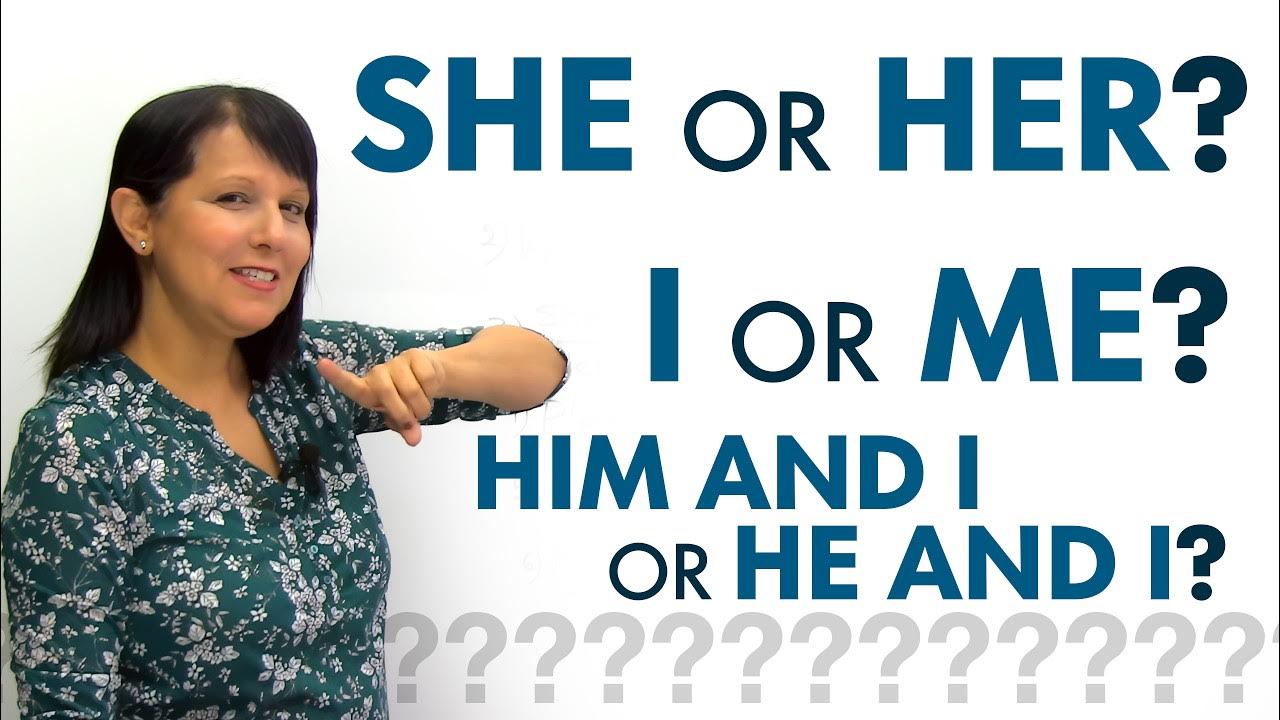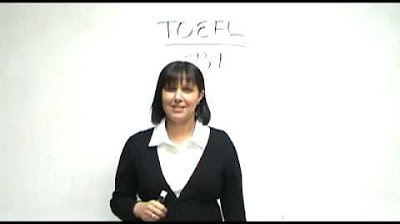How to give a presentation in English
Summary
TLDRIn this lesson, Rebecca, a corporate trainer, offers valuable strategies for delivering effective presentations in English, especially for non-native speakers. She emphasizes using simple language, speaking slowly, and having visuals professionally edited. Rebecca also advises using active verbs, transition words, and avoiding jargon, slang, and crutch words. She highlights the importance of clear communication, body language, and handling Q&A sessions. The lesson also directs viewers to a website for further resources on overcoming fear, structuring presentations, and accessing templates.
Takeaways
- 😀 **Use Simple Language**: Aim for clarity by using uncomplicated words to ensure your message is understood.
- 🔍 **Speak Slowly**: To enhance comprehension, especially for those unfamiliar with your accent, speak more slowly than you think is necessary.
- 🎨 **Professionally Edit Visuals**: Ensure all visual materials are checked for grammatical and spelling errors to maintain a professional appearance.
- ⚡ **Use Verbs Over Nouns**: Verbs make your speech more dynamic and easier to follow compared to heavy noun usage.
- 🏋️ **Prefer Active Verbs**: Active voice is clearer and more direct than passive voice, making your presentation more engaging.
- 🤝 **Work with a Trainer**: Collaborate with a professional to refine your presentation skills and receive constructive feedback.
- 🔄 **Incorporate Transition Words**: Use transition words to guide your audience through your presentation, enhancing clarity.
- 📝 **Write Down Important Numbers**: Clarify numerical values in writing to avoid confusion due to different cultural interpretations.
- 🚫 **Avoid Abbreviations and Jargon**: Explain acronyms and avoid industry-specific language to reach a wider audience.
- 📎 **Steer Clear of Slang**: Refrain from using slang unless you're confident in its correct application to maintain professionalism.
- 🚶 **Ditch Crutch Words**: Avoid fillers like 'um' and 'uh'; embrace silence while gathering your thoughts to appear more composed.
Q & A
What is the main focus of Rebecca's lesson in the provided transcript?
-The main focus of Rebecca's lesson is to teach strategies for giving a more effective presentation in English, especially for non-native speakers.
Why is giving a presentation in English considered difficult for non-native speakers?
-Giving a presentation in English is considered difficult for non-native speakers due to language barriers, potential lack of confidence, and the challenge of communicating effectively in a language that is not their own.
What is the first strategy Rebecca suggests for giving a successful presentation in English?
-The first strategy Rebecca suggests is to use simple language, as complicated words can lead to misunderstandings if the speaker is not comfortable or certain of their meanings.
Why is speaking slowly important when giving a presentation in English as a non-native speaker?
-Speaking slowly is important because it can help make the speaker more understandable to the audience, especially if they have an accent that might make comprehension more difficult.
What does Rebecca advise regarding the editing of presentation visuals?
-Rebecca advises having the presentation visuals professionally edited by a native English speaker or an editor to avoid grammatical or spelling errors that could compromise the presentation's professionalism.
Why should one use more verbs rather than nouns in a presentation?
-Using more verbs makes the content lighter and easier to understand, as opposed to using nouns, which can make the information heavier and more difficult to grasp.
What is the benefit of using active verbs instead of passive verbs in a presentation?
-Using active verbs makes the presentation clearer and more direct, as it emphasizes the doer of the action, making it easier for the audience to follow the message.
What role can a professional English trainer or presentation coach play in improving one's presentation skills?
-A professional English trainer or presentation coach can provide feedback, help identify strengths and weaknesses, and offer guidance on how to improve presentation skills effectively.
Why are transition words important in a presentation?
-Transition words are important because they help the audience follow the presenter's train of thought, providing clarity and coherence to the presentation's structure.
Why should important numbers be written down during a presentation, especially for an international audience?
-Writing down important numbers ensures clarity for all audience members, as numerical terms can vary significantly across different cultures and regions.
What are some things one should avoid doing when giving a presentation in English according to the transcript?
-One should avoid using abbreviations or acronyms without explanation, jargon, slang, and crutch words. These can confuse the audience or make the presentation sound unprofessional.
Where can one find more strategies and information on giving a successful presentation in English?
-More strategies and information can be found on the website www.presentationprep.com, which offers free resources and guidance on various aspects of presentation skills.
Outlines

Dieser Bereich ist nur für Premium-Benutzer verfügbar. Bitte führen Sie ein Upgrade durch, um auf diesen Abschnitt zuzugreifen.
Upgrade durchführenMindmap

Dieser Bereich ist nur für Premium-Benutzer verfügbar. Bitte führen Sie ein Upgrade durch, um auf diesen Abschnitt zuzugreifen.
Upgrade durchführenKeywords

Dieser Bereich ist nur für Premium-Benutzer verfügbar. Bitte führen Sie ein Upgrade durch, um auf diesen Abschnitt zuzugreifen.
Upgrade durchführenHighlights

Dieser Bereich ist nur für Premium-Benutzer verfügbar. Bitte führen Sie ein Upgrade durch, um auf diesen Abschnitt zuzugreifen.
Upgrade durchführenTranscripts

Dieser Bereich ist nur für Premium-Benutzer verfügbar. Bitte führen Sie ein Upgrade durch, um auf diesen Abschnitt zuzugreifen.
Upgrade durchführenWeitere ähnliche Videos ansehen

What is English as a Lingua Franca?

Confusing Subject & Object Pronouns: HE or HIM? I or ME? SHE AND I or HER AND I...?

How to be Confident When Presenting

TOEFL Basics - Introduction to TOEFL iBT

English Job Interview Tips and Tricks - How to Answer Job Interview Questions in English

Learn English FAST: The Essential Podcasts for Learning English
5.0 / 5 (0 votes)
